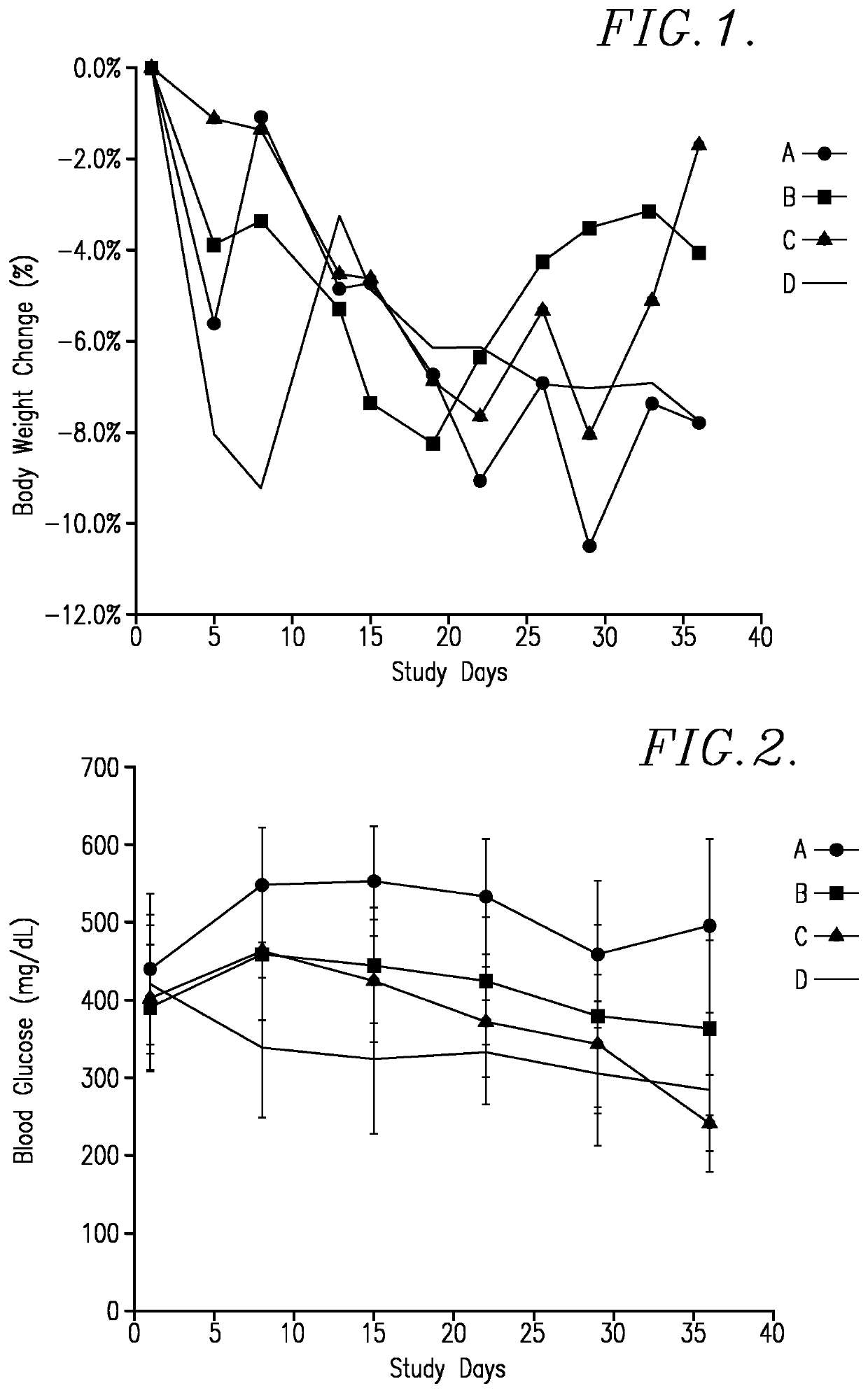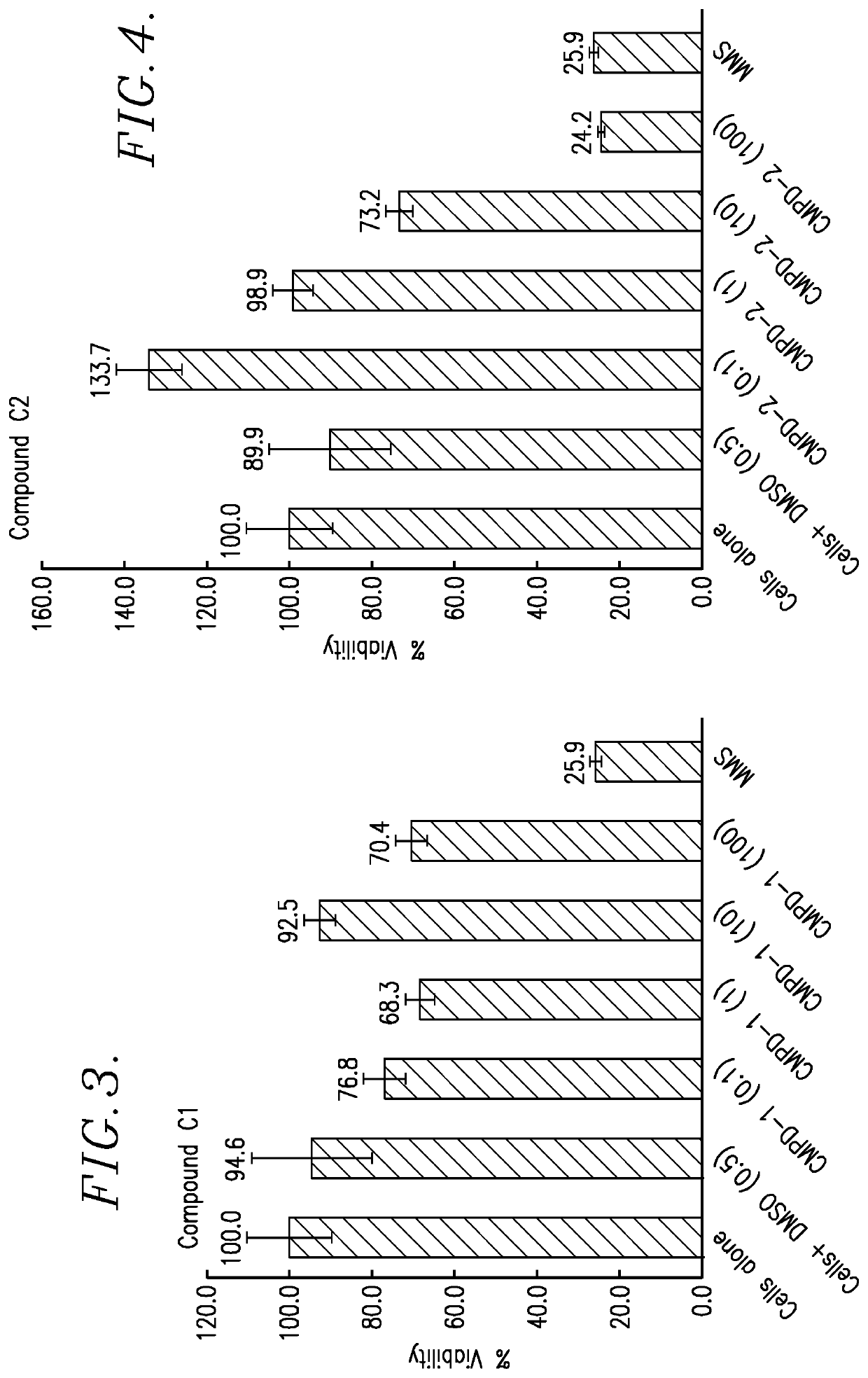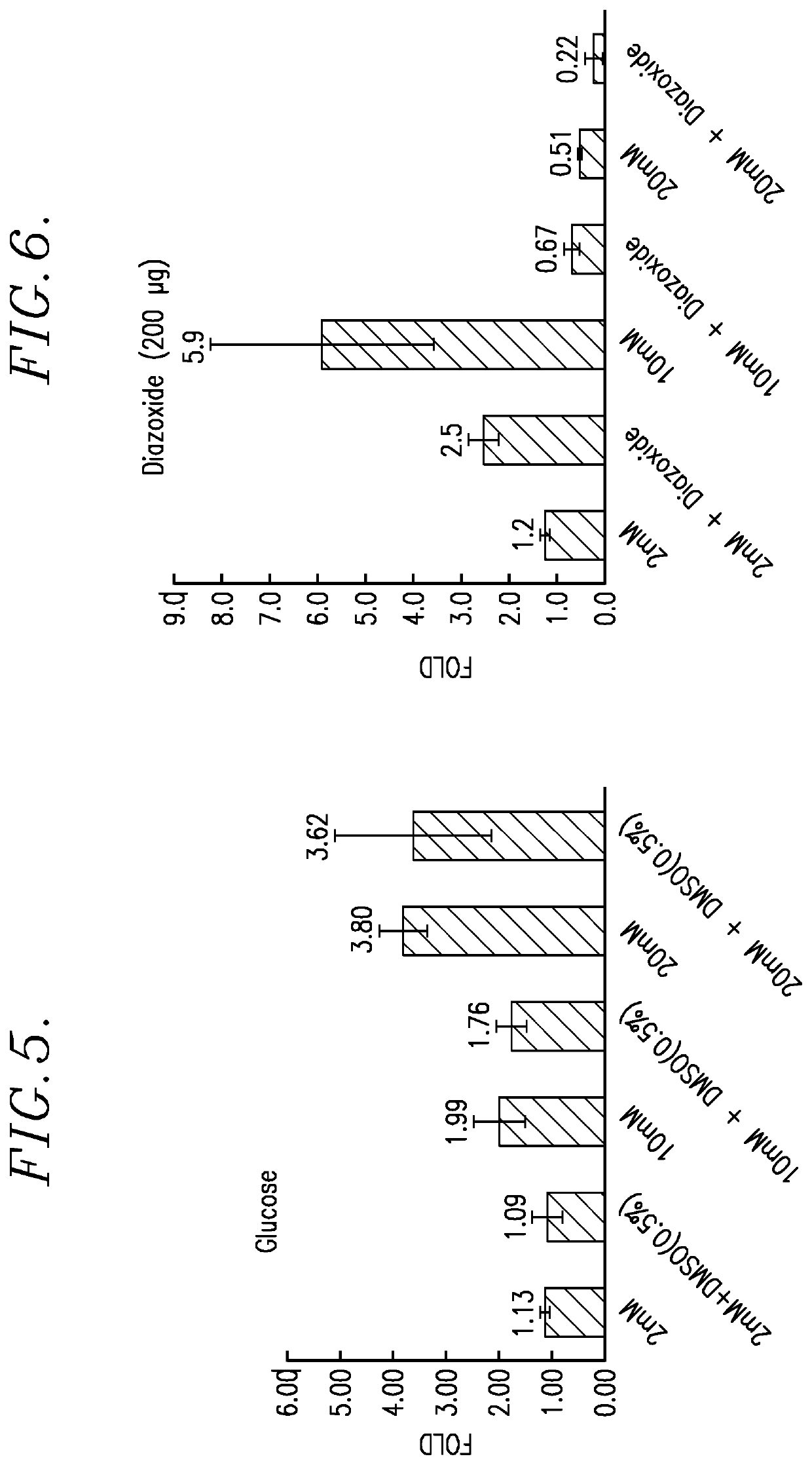Thymoquinone/harmaline and related reaction products
a technology of thymoquinone and harmaline, which is applied in the field of thymoquinone (tq) adducts with harmaline, can solve the problems of blood glucose, severe health problems, and insufficient insulin production of patients with diabetes
- Summary
- Abstract
- Description
- Claims
- Application Information
AI Technical Summary
Benefits of technology
Problems solved by technology
Method used
Image
Examples
example 1
[0070]A. Objective / Rationale
[0071]This test was designed to evaluate the in vivo activity of the TQ-harmaline reaction product (referred to as “TQ 725”), which was a mixture of compounds I-IV and VI (MW about 378), V and VII (MW about 360), and VIIID and VIIIF (MW about 540), as single agent in the NOD mouse model of diabetes. Subsequent investigations have confirmed that compounds VI and VII are the most active. The female NOD mice show evidence of diabetes onset by age week 12 and 70% presenting with diabetes (non-fasting plasma glucose higher than 250 mg / dl) by age week 20. The significant endpoint is assessment of weekly blood glucose levels.
[0072]B. Materials and Methods
[0073]1. Test System
Species / strain:NOD / ShiLtJ (Stock No: 001976)Physiological state:DiabeticAge / weight range at time 8-11 weeks (NOD / ShiLtJ)—11 weeks preferred of receipt:if offered by the vendorNumber / sex of animals:40 / Female*Replacement:Animals were not replaced during the course of the study.*Number of mice w...
example 2
[0092]The purpose of this study was to assess the maximum tolerated single dose of the TQ 725 product as a single agent in 27 female non-tumor-bearing SCID beige mice. A stepwise approach was used to determine the single dose tolerability.
[0093]The mice were five weeks of age at the time of dosing and had a normal physiological state. The mice were housed in individual, ventilated, microisolator cages under pathogen-free conditions. The mice were fed Ad libitum Teklad Global Diet 2920x eradiated pellets, and autoclaved water. IACUC Protocol #16094 was followed.
[0094]The test product was a DMSO solution containing 100 mg / mL of the TQ 725 reaction product stored at 4° C. and protected from light. This test product was used to prepare a dosage form made up of 10% of the DMSO / 725 test product, diluted with 90% PEG 400 by gentle hand mixing. The dosage form was stored at 4° C. and protected from light.
[0095]The dosage form was administered orally in a single dose. Three groups of 9 mice ...
example 3
[0097]In this Example, in vitro cell proliferation assays were performed using: (1) Human Myeloma tumor cell lines; (2) Human Lymphoma tumor cell lines; (3) Solid Human tumor cell lines; and (4) Parental, Lenalidomide resistant and Bortezomib resistant Jeko-1 Mantle cell Lymphoma tumor cell lines. The reaction product tested was the TQ 725 product described above.
[0098]Each proliferation assay was carried out as follows. The test cells were plated in growth media using a 384-well microtiter plate at 50 μL volume. The cells were incubated for 24 hours at 37° C. in a humidified incubator. After 24 hours of incubation, the test TQ 725 product was added to the test wells in DSMO solvent, at a concentration ranging of 10.5 mM. Control wells received equal volumes of DSMO, without the reaction product. Following drugging, the cells were incubated for 72 hours at 37° C. in a humidified incubator. After this exposure, 100 μL of a 1:1 mixture of sterile water and CellTiter-Glo® reagent (Prom...
PUM
 Login to View More
Login to View More Abstract
Description
Claims
Application Information
 Login to View More
Login to View More - R&D
- Intellectual Property
- Life Sciences
- Materials
- Tech Scout
- Unparalleled Data Quality
- Higher Quality Content
- 60% Fewer Hallucinations
Browse by: Latest US Patents, China's latest patents, Technical Efficacy Thesaurus, Application Domain, Technology Topic, Popular Technical Reports.
© 2025 PatSnap. All rights reserved.Legal|Privacy policy|Modern Slavery Act Transparency Statement|Sitemap|About US| Contact US: help@patsnap.com



